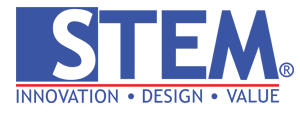Setting an accurate purchase price is crucial in business operations. With a correctly calculated purchase price, you can set competitive selling prices without sacrificing profits. Understanding how to determine the purchase price will help maintain your business’s financial stability, plan promotional strategies, and set suitable profit margins.
Basic Formula for Calculating Purchase Price
The purchase price can be determined with a straightforward formula, especially when aiming for a specific profit percentage.
Basic Purchase Price Formula:
Purchase Price = Selling Price / (1 + Profit Percentage)
Example: If the selling price is Rp200,000 and you desire a 20% profit, the purchase price would be:
Purchase Price = 200,000 / 1.20 = Rp166,667
By using this formula, you can achieve the optimal purchase price, enabling a realistic selling price.
Also read: Formula How to calculate the selling price
Calculating Purchase Price with Discounts
In certain situations, a product might be subject to a discount. For such cases, the purchase price needs to be calculated after applying the discount.
Formula for Purchase Price After Discount:
Purchase Price After Discount = Initial Selling Price x (1 - Discount Percentage)
Example: If the initial selling price is Rp150,000 with a 15% discount, the purchase price after discount would be:
Purchase Price After Discount = 150,000 x 0.85 = Rp127,500
Calculating Purchase Price with Additional Costs
Occasionally, additional expenses like taxes or shipping need to be included in the purchase price.
Formula for Purchase Price with Additional Costs:
Total Purchase Price = Initial Purchase Price + Additional Costs
Example: If the initial purchase price is Rp100,000, with Rp10,000 for shipping and Rp5,000 for tax, then:
Total Purchase Price = 100,000 + 10,000 + 5,000 = Rp115,000
Setting the Purchase Price to Achieve Target Profit
If you have a specific profit target, the following formula will be helpful:
Purchase Price = Expected Selling Price / (1 + Target Profit Percentage)
Example: For an expected selling price of Rp300,000 and a 25% profit target, the purchase price is:
Purchase Price = 300,000 / 1.25 = Rp240,000
Calculating Purchase Price Based on Desired Profit Margin
To calculate the purchase price for a specific profit margin, use this formula:
Purchase Price = Selling Price - (Selling Price x Desired Profit Margin)
Example: With a selling price of Rp400,000 and a profit margin of 30%, the purchase price would be:
Purchase Price = 400,000 - (400,000 x 0.30) = Rp280,000
Adjusting Purchase Price for Price Fluctuations
The purchase price may vary due to factors like exchange rate shifts or raw material cost increases. To manage this, consider periodically adjusting the purchase price or using an average price over a set period.
- Regular Updates: Always update purchase price calculations in response to significant changes.
- Use Average Purchase Price: Using an average price within a certain period can help maintain stable pricing.

Tips for Maintaining a Competitive Purchase Price
To maintain an efficient purchase price, consider these strategies:
- Negotiate with Suppliers: Bulk purchases often qualify for additional discounts.
- Utilize Long-term Purchase Contracts: Contracts can secure raw material prices and reduce price fluctuations.
- Reduce Operational Costs: By optimizing storage or packaging costs, you can reduce the purchase price.
Optimize Purchase Price with Data and Technology
Technology, like accounting software and big data, can streamline purchase price tracking. Inventory system integration, for example, helps forecast purchasing needs more accurately, preventing unnecessary overstock.
- Accounting Software: Many accounting software solutions offer features for tracking purchase prices.
- Big Data: Big data analysis can help you understand pricing trends and buy raw materials at optimal times.
Conclusion
Understanding and calculating an optimal purchase price is essential for maintaining business profitability. With the right formulas, effective purchasing strategies, and the use of technology, you can optimize purchase prices, protect profit margins, and strengthen your business’s competitive edge.


